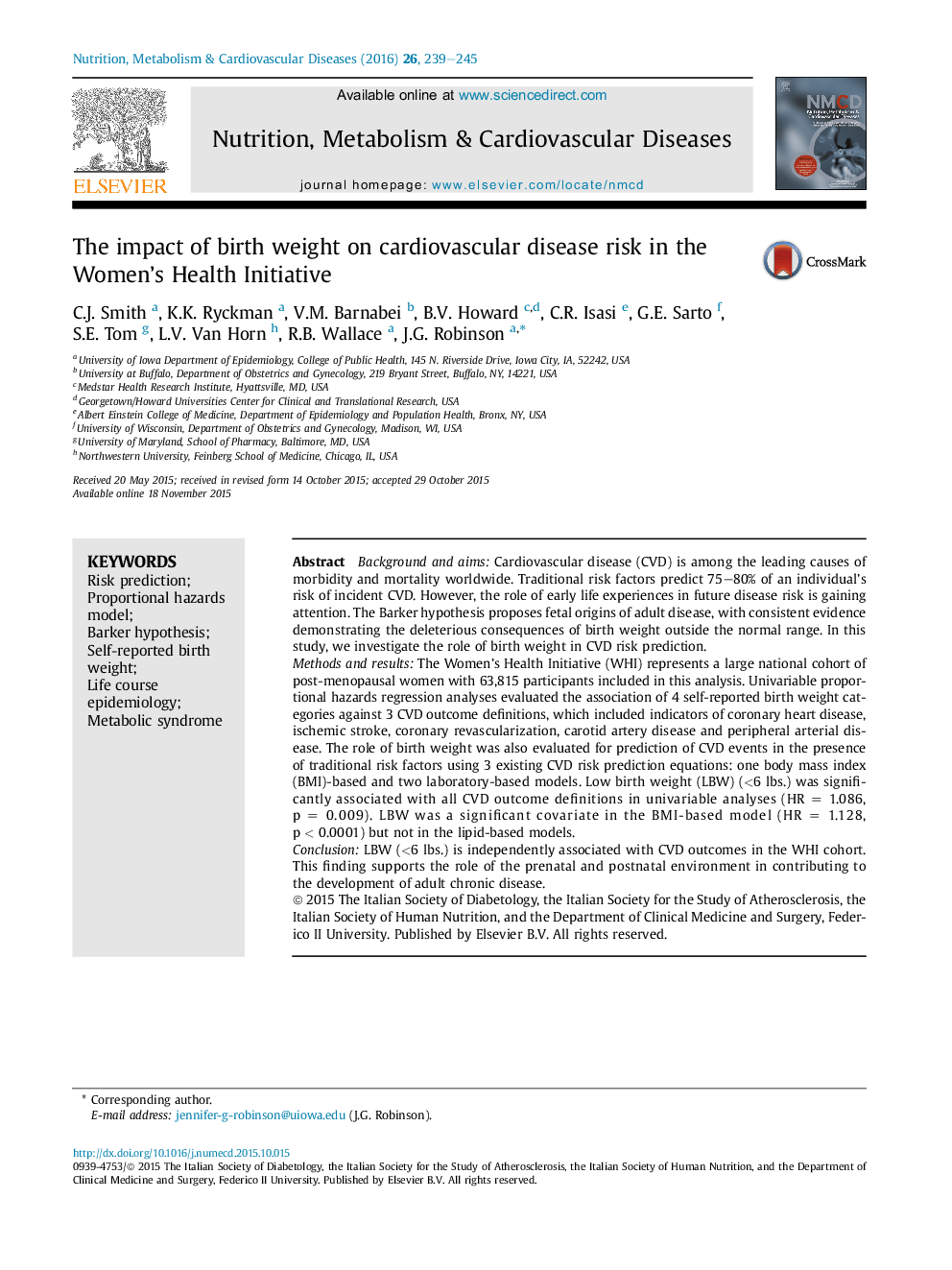| کد مقاله | کد نشریه | سال انتشار | مقاله انگلیسی | نسخه تمام متن |
|---|---|---|---|---|
| 3001778 | 1180670 | 2016 | 7 صفحه PDF | دانلود رایگان |
• Epidemiologic studies demonstrate an increased risk of CVD for LBW individuals.
• We evaluate the predictive value of birth weight in CVD risk prediction among WHI participants.
• Self-reported birth weight was analyzed for association with three composite CVD outcomes.
• LBW (<6 lbs.) is independently associated with increased risk for CVD in the WHI population.
• Low birth weight is a significant predictor of CVD risk in a model using BMI as a proxy for lipids.
Background and aimsCardiovascular disease (CVD) is among the leading causes of morbidity and mortality worldwide. Traditional risk factors predict 75–80% of an individual's risk of incident CVD. However, the role of early life experiences in future disease risk is gaining attention. The Barker hypothesis proposes fetal origins of adult disease, with consistent evidence demonstrating the deleterious consequences of birth weight outside the normal range. In this study, we investigate the role of birth weight in CVD risk prediction.Methods and resultsThe Women's Health Initiative (WHI) represents a large national cohort of post-menopausal women with 63,815 participants included in this analysis. Univariable proportional hazards regression analyses evaluated the association of 4 self-reported birth weight categories against 3 CVD outcome definitions, which included indicators of coronary heart disease, ischemic stroke, coronary revascularization, carotid artery disease and peripheral arterial disease. The role of birth weight was also evaluated for prediction of CVD events in the presence of traditional risk factors using 3 existing CVD risk prediction equations: one body mass index (BMI)-based and two laboratory-based models. Low birth weight (LBW) (<6 lbs.) was significantly associated with all CVD outcome definitions in univariable analyses (HR = 1.086, p = 0.009). LBW was a significant covariate in the BMI-based model (HR = 1.128, p < 0.0001) but not in the lipid-based models.ConclusionLBW (<6 lbs.) is independently associated with CVD outcomes in the WHI cohort. This finding supports the role of the prenatal and postnatal environment in contributing to the development of adult chronic disease.
Journal: Nutrition, Metabolism and Cardiovascular Diseases - Volume 26, Issue 3, March 2016, Pages 239–245
